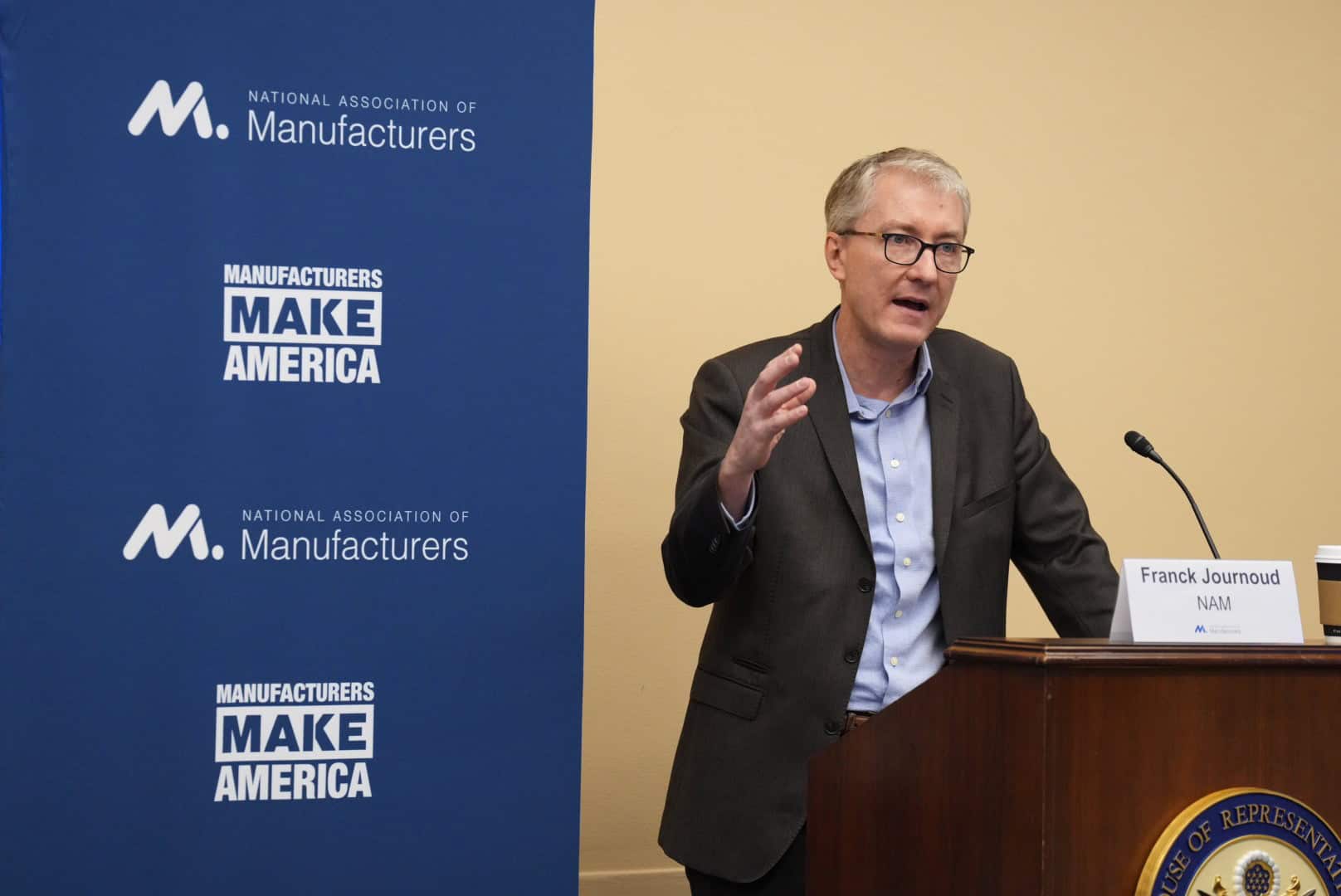The NAM Briefs Congress on AI

Generative AI tools like ChatGPT and Midjourney have grabbed headlines, but artificial intelligence–driven innovations like digital twins, computer vision and robotics are also transforming manufacturing in America.
Last week, the NAM briefed congressional staff from the House Task Force on AI to help educate policymakers on the role manufacturers are playing as both developers and deployers of AI technologies. The briefing follows the publication of the NAM’s first-of-its-kind white paper on the ways manufacturers are using AI.
The briefing featured a panel discussion among AI experts from major manufacturers, as well as the AI leads from the NAM and the Manufacturing Leadership Council.
Faster breakthroughs: AI is accelerating research and development at manufacturing companies, the panelists reported, allowing them to create or improve products in record time.
- For example, pharmaceutical companies are using AI to develop and test new lifesaving drugs, while automakers are using it to improve vehicle components.
Increased safety: AI is helping to prevent accidental collisions on the shop floor and enhancing equipment that makes tasks safer, such as robotic exoskeletons that collect and learn from data on the wearers’ movements and environment.
- In addition, companies are using AI to better understand and monitor product performance, helping reduce maintenance costs and avoid dangerous malfunctions.
Augmenting human labor: Manufacturers often use AI technology to complement and augment the work of humans, according to the panelists.
- Human operators still make decisions and oversee operations, but AI has helped improve the reliability of manufacturers’ processes as well as the quality, delivery and safety of their products.
- This combination of human ingenuity and AI enhances efficiency while still prioritizing human experience.
Policy recommendations: Panelists discussed what Congress can do to support AI-driven growth in the manufacturing sector, including:
- Modernizing compliance requirements to support AI development and adoption, especially for small manufacturers most affected by regulations;
- Ensuring that the regulatory environment helps the U.S. maintain global leadership in AI innovation, including by adjusting rules based on context and risk; and
- Creating or supporting initiatives to train workers in AI-related skills, including by providing the data needed to develop these programs.
The last word: “The future of manufacturing is inseparable from the future of AI,” said NAM Senior Director of Technology Policy Franck Journoud.
- “It is crucial that policymakers hear directly from manufacturers that are leading the development and adoption of this transformative technology. The NAM is thankful to have had an opportunity to share this world-class expertise, and we are committed to working with Congress to ensure the U.S. remains a global leader in AI innovation.”
